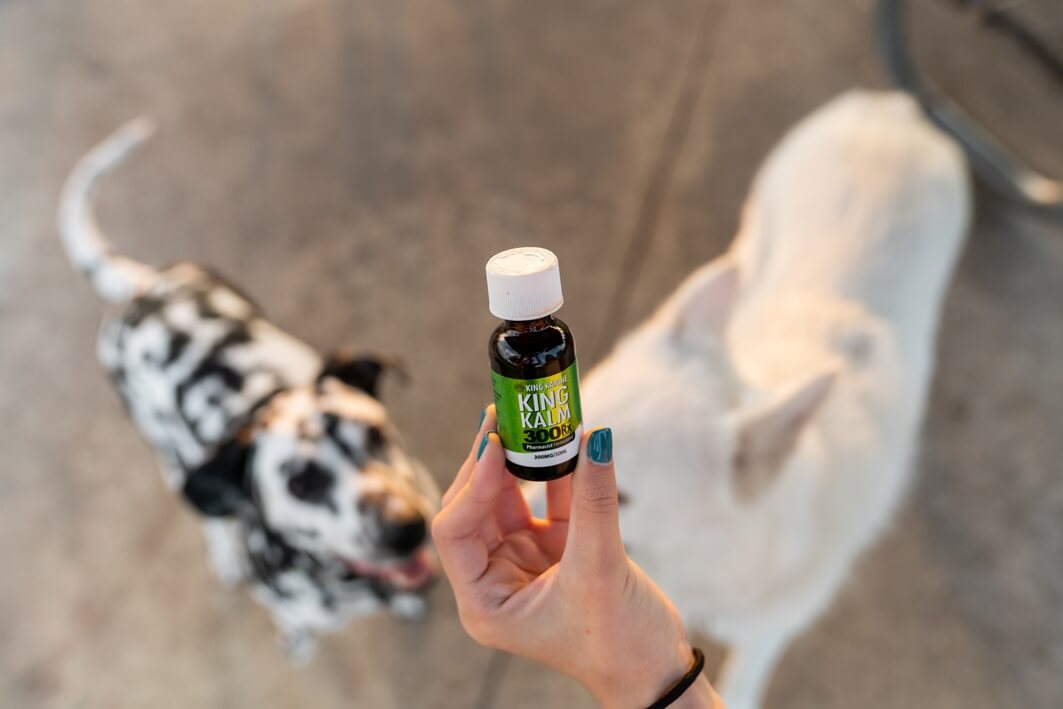



July 02, 2019 3 min read
When it comes to caring for the four-legged members of our families, natural treatments often provide the best solutions for their health needs. Currently, no organic treatment has more momentum than CBD for dogs, the herbal supplement helping thousands of pets and pet owners around the world.
In the last years, CBD has earned a reputation as one of the most effective natural supplements for pets. Scientific research and anecdotal evidence suggest CBD may help pets live a happier, more balanced life because of the way the hemp compound interacts with their systems.

One of the most important things to understand regarding CBD is that it is not marijuana, and it will not intoxicate your pets. CBD is simply a compound found in different varieties of cannabis, such as hemp and marijuana. Most
CBD oil products sold today, especially those geared toward pets, are made with extracts from hemp, not marijuana. But what is the difference between these two plants?
Even though they are both related to the cannabis plant species, hemp and marijuana possess very different properties. The major difference between these two strains of cannabis is their THC vs. CBD content.
Tetrahydrocannabinol, or THC, is the cannabis compound responsible for the psychedelic effects associated with the plant. On the other hand, cannabidiol (CBD), which is also found in hemp and marijuana, is known for its therapeutic properties and produces no intoxicating effects.
As mentioned before, the main difference between hemp and marijuana is their THC and CBD content. Marijuana contains little CBD, but has a high THC content which explains why users will often experience psychotropic effects or a “high.” Meanwhile, hemp is extremely rich in CBD but has insignificant levels of THC, making it an excellent option for those who wish to benefit from the therapeutic effects of cannabis without any side effects.

Studies show cannabidiol interacts with the endocannabinoid system or ECS. The endocannabinoid system consists of a network of receptors expressed throughout the nervous and immune systems of mammals. These receptors are responsible for regulating cell activity related to various biological functions such as sleep cycles, pain management, and anxiety levels.
By interacting with these receptors, CBD can keep the endocannabinoid system in balance, thus helping to regulate many of the functions associated with the ECS. A healthy endocannabinoid system can improve the quality of life of your pets by:
For more information on how CBD can help improve your pet’s quality of life,
click here.
In the United States, hemp is legal in all 50 states thanks to the Agriculture Improvement Act, colloquially known as The 2018 Farm Bill. The bill, signed into law in late 2018, legalized hemp at the federal level. Among many things, the bill officially removed hemp from the national list of controlled substances and classified the plant as an agricultural commodity.
As a result of the Agriculture Improvement Act, hemp and hemp-derived products are legal nationwide. However, individual states agencies are still allowed to impose restrictions regarding hemp cultivation and consumption practices.

After it is extracted from the hemp plant, CBD can be manufactured into a full spectrum of wellness products for both humans and pets. When it comes to CBD for dogs, the most popular products include CBD oils and CBD dog treats. Dog grooming products like organic shampoos and skin creams with CBD are also becoming increasingly available across the country.
If you are considering CBD for your furry friends, there are some guidelines you should follow. First, you should ensure CBD extracts are obtained from industrial hemp grown in the United States. This guarantees that all products are THC-free and compliant with regulations.
You should also only purchase products formulated by licensed pharmacists. Professional pharmacists have the knowledge and experience to produce the most effective products using the safest methods. Finally, make sure all products are tested by independent laboratories to ensure formulas comply with all safety and quality standards.